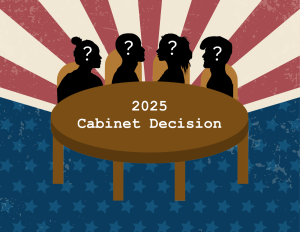As students attempt to resettle after evacuating from campus, it has been increasingly difficult to get back into the swing of things. When away from your usual routine for too long, it can be easy to feel frozen in time and wonder how on Earth you used to do it. But you were capable of doing it before; who’s to say you cannot do it again? And even if you were not organized pre-hurricane, now is the perfect time to start making strides in doing so!
In this edition of What’s Up Wellness, we will be sharing with the Rollins Community tips on how to stay organized. This is an important skill to master, but what’s most important is tailoring organization to what works best for you. Here are some tips on how to remain organized:
- Develop a medium to track your tasks and events throughout the day: Everyone needs a place to brain dump. Some use planners, others use calendars, and some maybe even use sticky notes. But it’s important to have this space so you can set realistic goals and avoid conflicts. Having a space to document your daily tasks and events also allows for a realistic visualization of how much you’re doing versus which tasks consistently fall through the cracks.
- Schedule regular breaks during the day: Your brain is a muscle—it needs breaks. Breaks can be helpful in promoting productivity because they will clear your mind before returning to a task. Going all day without a break will result in a loss of focus. Block time off in your daily schedule to rest and indulge in activities such as eating food, exercising, and maybe even taking a power nap.
- Avoid multitasking: Contrary to popular belief, multitasking reduces efficiency. Our brains are incapable of focusing on two tasks at once, so when we attempt to multitask, our brains actually are not doing it successfully. Multi-tasking divides your attention, meaning you won’t be putting your full effort into each task. This also can result in more mistakes, causing you to consistently backtrack on the task.
- Track progress: Any progress is progress. Tracking this progress allows you to understand which time of the day you are most productive. Most people are productive during the day and start winding down at night. But this does not mean others may not be more productive at night or in the afternoon. This strategy will also help you to prioritize your tasks throughout the day.
We hope this helps you achieve your goals in a less time-pressing way and promotes success for you for the rest of the semester.
Well wishes from the Wellness Ambassadors!






Comments are closed.